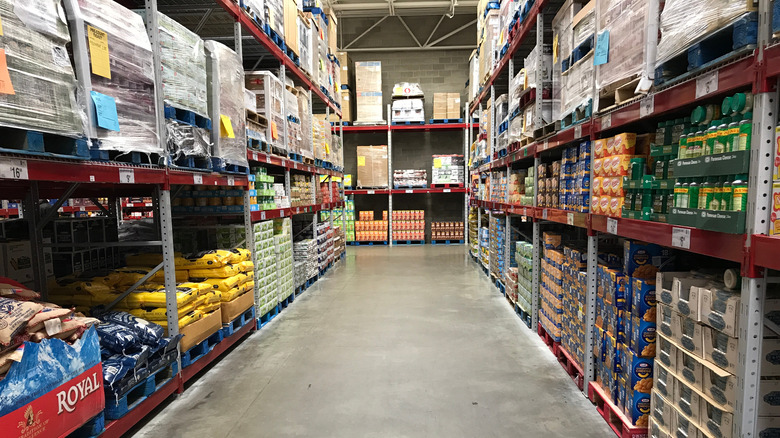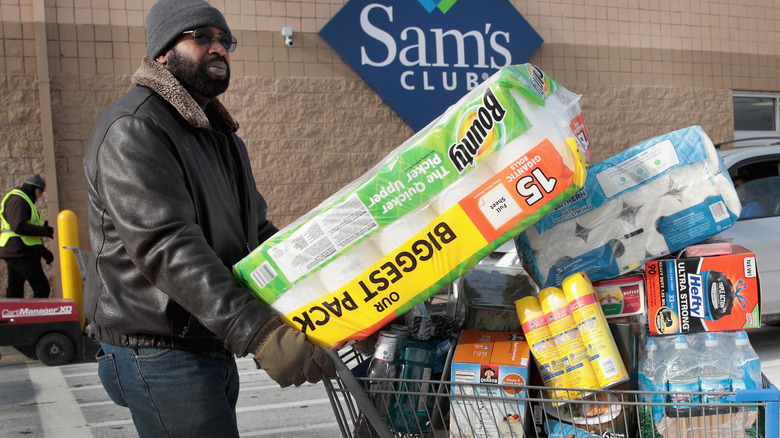Here's Who Really Decides What Goes On Sam's Club Shelves
Giant tubs full of cheese puffs. Pallet-sized boxes of Famous Amos cookies. Gigantic bags of dog food that you have to forcefully shove into the trunk of your car to make fit.
A shopping trip to Sam's Club is always a bountiful one. Advertising low prices for buying in bulk, there's a good chance you'll be so stocked up that a trip back to Sam's won't be happening for a few months. But just how exactly does Sam's Club work? Past the membership, the food court, and the bulk buys, have you ever wondered how Sam's Club operates in connection to Walmart and how all these products wind up on their shelf?
Sam's Club isn't just owned and operated by Walmart, it's even named after the founder of the supercenter: Sam Walton. According to FundingUniverse, Sam's Club largely benefits from Walmart's sophisticated distributing system, as well as having the benefit of being located in more urban areas than the suburban market Walmart catered to. While chains such as Costco may be in the market for big bulk savings, Sam's Club still tries to offer the same idea of low prices that Walmart is so famous for.
Of course, another difference in Sam's Club from Walmart is the selection of goods, which are far more expansive than what one would normally find at Walmart. Just who decides what goes on those warehouse-style shelves?
Associates help decide what goes on Sam's Club shelves
Yes, you read that right. Sam's Club associates help to figure out just what will be put on Sam's Club shelves. The process is professional and rigorous.
At the Sam's Club "Sensory Lab" in Bentonville, Arkansas, certain associates and members of the public can "taste-test" certain products such as desserts and give their feedback based on taste, texture, appearance, and other factors that may make them suitable for sale (via Supermarket News). For example, a piece of roast beef meant for the deli was tested, with the results being that the meat was too fatty, so the beef was replaced with a more suitable type of deli meat (via Walmart Corporate). It's not just the food itself that is tested and examined, but also the packaging and certain ingredients.
Why such a focus on rigorous testing? The company puts it like this (via TalkBusiness): If the average customer pays to shop at Sam's Club, they certainly would expect to be getting only the top-of-the-line quality in their purchases, wouldn't they? The intensive focus on tests, with about 65 to 100 people participating each day, is meant to ensure that the consumer's expectations are met.

